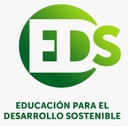Executive Secretary

Simposio Internacional Educación para el desarrollo sostenible (EDS) 2021
La universidad como institución sociocultural tiene dentro de su misión preservar, desarrollar y promover la cultura en sus diferentes manifestaciones, entre las cuales el patrimonio cultural como elemento socialmente valioso, precisa ser preservado para las actuales y futuras generaciones. En este sentido, la investigación abordó el tema de la educación patrimonial en el contexto de la Universidad de Pinar del Río. Tuvo como principal objetivo proponer un programa de Educación Patrimonial como parte del currículum optativo de las asignaturas que se imparten desde la extensión universitaria que contribuya a la preservación del patrimonio cultural de la nación, así como también a la preservación del patrimonio cultural de la universidad. El estudio fue realizado desde una perspectiva investigativa descriptiva-explicativa y la recurrencia a métodos de los niveles teórico y empíricos entre ellos el histórico lógico, junto a los procedimientos lógicos de análisis síntesis, así como técnicas de la investigación científica como la entrevista y la encuesta. Los principales resultados obtenidos mostraron debilidades en el proceso de educación patrimonial en la universidad, y expresan la necesidad de que el tema ocupe espacio en la formación del estudiante universitario. Del estudio realizado se concluye que la educación patrimonial en el contexto universitario constituye una vía expedita para un mejor conocimiento, preservación y difusión del patrimonio cultural, así como también al desarrollo de valores, el fortalecimiento de la identidad cultural y la cohesión social a escala universitaria.
The university as a sociocultural institution has within its mission to preserve, develop and promote culture in its different manifestations, among which cultural heritage as a socially valuable element, needs to be preserved for current and future generations. In this sense, the research addressed the issue of heritage education in the context of the University of Pinar del Río. Its main objective was to propose a Heritage Education program as part of the optional curriculum of the subjects taught from the university extension that contributes to the preservation of the cultural heritage of the nation, as well as to the preservation of the cultural heritage of the university. The study was carried out from a descriptive-explanatory investigative perspective and the recurrence to methods of the theoretical and empirical levels, including the logical historical, together with the logical procedures of synthesis analysis, as well as scientific research techniques such as the interview and the survey. The main results obtained showed weaknesses in the heritage education process at the university, and express the need for the subject to occupy space in the training of university students. From the study carried out, it is concluded that heritage education in the university context constitutes an expeditious way for a better knowledge, preservation and dissemination of cultural heritage, as well as the development of values, the strengthening of cultural identity and social cohesion at the university level.
Sobre el ponente

MsC. Marlen Silva

Profesora asistente. Departamento de extensión universitaria. Universidad de Pinar del Río.






